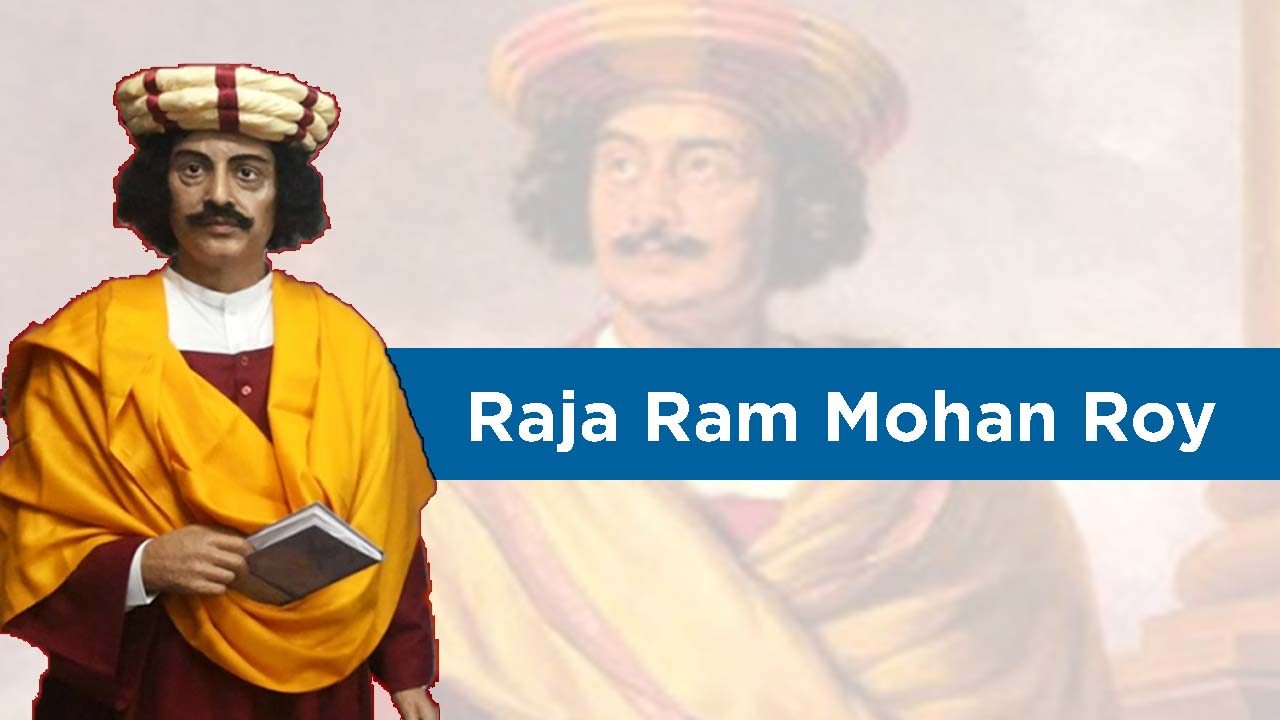Remembering Raja Ram Mohan Roy: September 27 marks the death anniversary of King Raja Ram Mohan Roy, who improved the thoughts of India. He was the pioneer of the social reform movement. Raja Rammohan Roy died on 27 September 1833 in England. He was born on 22 May 1772 and he is also called the father of modern India.
Roy was born in a Brahmin family. He was the founder of Brahma Samaj. He quit the East India Company job and threw himself into the national society. He got Indian society out of the practice of Sati, child marriage before independence. In the early stages of his career, he also worked in ‘Brahmanical Magazine’, ‘Samvad Kaumudi’. His whole life was spent fighting the rights of women.
Raja Rammohan Roy felt pain towards women when his sister-in-law had to be Sati. He went abroad for some work and in the meantime, his brother died. After that, society’s contractors burnt his sister alive in the name of Sati. After this, he intensified his agitation against Sati Pratha. He enacted a law against Sati and against the evils of the society in the year 1929 with the help of Governor-General Lord William Bentinck. Mohan Roy was also opposed to idol worship, but once considered becoming a monk. Akbar, the then Mughal ruler of Delhi II gave him the title of ‘King’ which is the biggest honour of his life.
Social reformer Raja Ram Mohan Roy, often dubbed as the Father of the Indian (or Bengali) Renaissance. One of the founders of the Brahmo Sabha, his contributions are celebrated to this day. Roy’s influence was prominent in many fields – be it politics or education or even religion. As many of you might already know, he had worked to abolish social evils. Roy campaigned for rights for women, including the right for widows to remarry, and the right for women to hold property. He actively opposed Sati system and the practice of polygamy.
But there are also many fascinating nuggets of information that most don’t know about the Bengali reformer. And what better time than his death anniversary to look back at his fascinating life?
He was given the title ‘Raja’ by the Mughal Emperor Akbar Shah II who then sent him as a representative to Britain. Keep in mind that this was well into the era of British rule in India and thus, the Mughal ruler did not have much by way of power.
Proficient in Sanskrit, Persian, Arabic, English, Bengali and Hindi, Roy had written his first book Tuhfat-ul-Muwahhidin (A Gift to Monotheists) in Persian with an introduction in Arabic. At the time, he had been living in his hometown of Murshidabad in Bengal. Alongside books, he had also published the Persian journal Mirat-ul-Akbar and founded the newspaper Sambad Kaumudi.
Remembering Raja Ram Mohan Roy: The man who fought against the social evils
He started the Atmiya Sabha in Kolkata in 1815. It ran till 1823 and was a philosophical discussion circle. As a page on the official website of the West Bengal Council of Higher Secondary Education notes, “Atmiya Sabha tried to initiate social and religious reforms in the society”. Dwaraka Nath Tagore is believed to have been a member.
Having left home after ideological differences with his father, Roy had travelled widely, wandering around the Himalayas and even went to Tibet.
Having passed away from meningitis, Roy was first buried at Stapleton Grove in Bristol. Later however, he was relocated on 29 May 1843 to the Arnos Vale Cemetery, in Brislington.

















